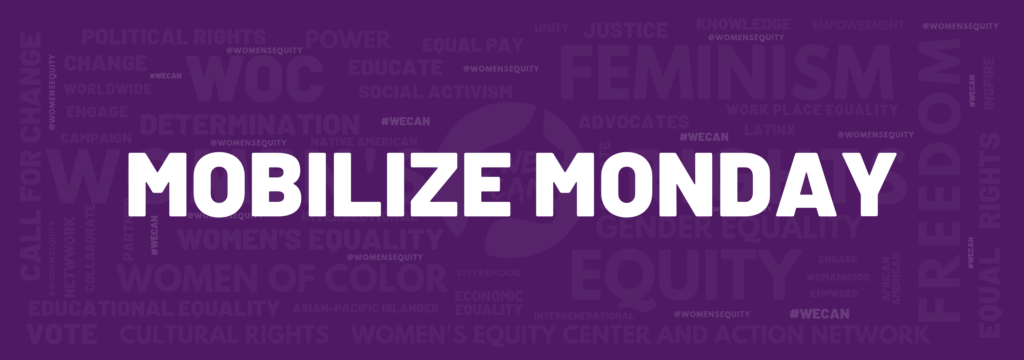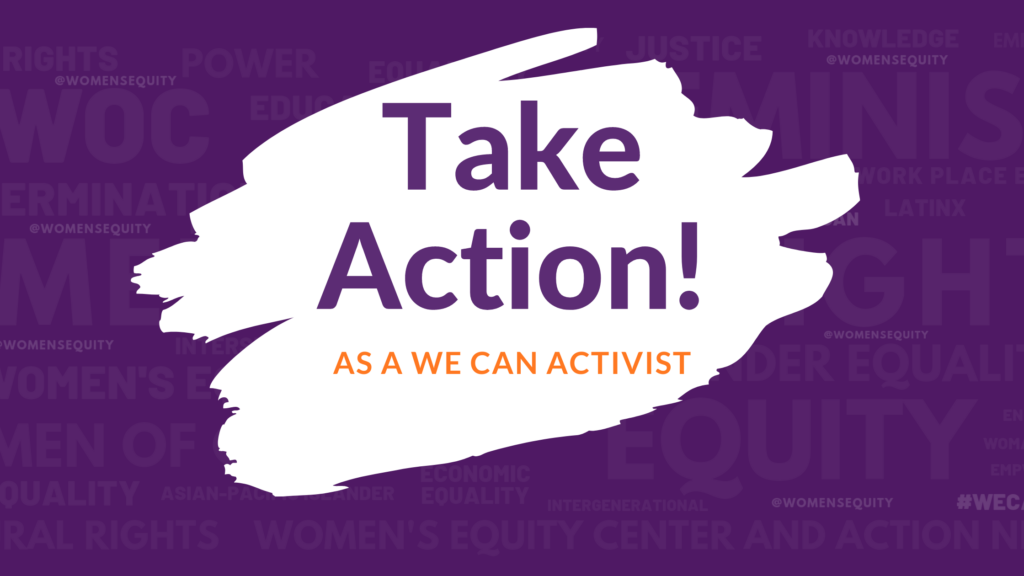
Women of Color Live in the Burbs Too!

Sisters,
The 2024 presidential election season is officially underway. President Biden and Former President Trump have both secured enough delegates (check out the brief video below that explains what it means to be a delegate) to win their party’s nomination during their conventions this summer. Until then, we can expect negative ads, polls that don’t ask any of us what we think, and misinformation distributed by folks outside the U.S. designed to influence our elections. Basically, it will be a full-on assault on our senses, so buckle up. We have 224 more days of foolishness, and we need to get ready to make some sense of what we’re hearing and VOTE in November.
Let’s talk about something you will hear a lot about that seemingly has nothing to do with us—candidates courting suburban women. By now, you’ve seen or heard about Alabama Senator Katie Britt’s rebuttal to President Biden’s State of the Union speech. You can find the video here, but I’ll warn you it is hard to watch. Her speech should be a wake-up call for all women of color.
Let me be clear: her speech was NOT meant to speak to us or for us. She succeeded in attracting more so-called suburban moms to the conservative cause. They likely now feel even more justified in their opinions and remain opposed to anything that would benefit us, like affirmative action, equal pay, reproductive health and rights, economic development programs, and affordable health care, just to name a few. The crazy part is that they are so hell-bent on keeping us down that they don’t realize they are advocating and voting against their own interests! Political pollsters and pundits have also seemingly forgotten that women of color also live in the suburbs. WE CAN is headquartered in one of the largest and wealthiest African-American suburbs in the nation. Any pollster or pundit can come to the county and find well-educated, married, employed, homeowning, devoted moms and dads, and civic-minded Black and Hispanic folks. In fact, nationwide, suburban areas are becoming more diverse, with more Black and Hispanic families moving out of the inner city.

Suburban Women, No Longer ‘Soccer Moms,’ Hold Key to Midterms
A caricature of the suburban female voter looms large in American politics. But in battleground regions, many voters don’t fit the stereotype — and perhaps, never did. Read the full New York Times article HERE.
In American politics, suburban voters, especially white women, have long been considered a coveted prize. Suburban white women have been a focal point for politicians for several years and election cycles. Many believe they cannot win an election without the support of white suburban women. While the voices and experiences of suburban women of color have often been overlooked or sidelined. It is high time for politicians to recognize the unique perspectives and priorities of women of color in their outreach efforts to suburban voters.
Contrary to stereotypes, suburbs are not homogenous enclaves of privilege. They encompass a rich blend of cultures, ethnicities, and socio-economic backgrounds. Women of color constitute a significant portion of suburban populations, bringing with them a wealth of experiences and concerns that differ from their white peers. Ignoring this diversity risks alienating a substantial segment of the electorate that many candidates will need to secure enough support to win elections.
Including women of color as a critical group of suburban voters is not just politically smart; it’s a question of democratic principles. Representation matters. When politicians fail to engage with the full spectrum of their constituents, they undermine the very foundations of democracy. Every woman of color voter deserves to feel seen, heard, and valued by their elected officials. By elevating the voices of women of color in their outreach efforts, politicians demonstrate a commitment to inclusivity and equality.
Every woman of color voter deserves to feel seen, heard, and valued by their elected officials. By elevating the voices of women of color in their outreach efforts, politicians demonstrate a commitment to inclusivity and equality.
By incorporating the perspectives of women of color into their policy platforms and campaign strategies, politicians can better address the multifaceted needs of suburban communities. This means going beyond tokenistic gestures or superficial appeals and engaging in meaningful dialogue with diverse stakeholders. It means actively listening to women of color’s concerns, amplifying their voices, and crafting policies that reflect their lived realities.
Furthermore, inclusive outreach to women of color in suburban areas can yield electoral dividends for politicians. Research indicates that women of color, particularly Black and Latina women, are highly engaged and influential voters. Their political clout extends beyond their individual voting power, as they often serve as opinion leaders within their communities. By building authentic relationships with women of color in suburban settings, politicians can mobilize a powerful network of advocates and allies who are essential for electoral and governance success.
Including women of color in the conversation about suburban voters is not just a matter of political strategy; it’s a matter of democratic integrity and solidarity. Our democracy is fraying at the edges, with various constituencies fighting against one another over the crumbs left behind by the ultra-rich, white conservatives using whatever weapon they can to divide us.
We cannot allow that brand of democracy to win! WE CAN defeat them by joining hands across races—African American, Latinx, Asian Pacific Islander, and Native American—to advance the needs of all women, our white peers included.
Women are the heartbeat of this nation, and we must embrace the words of Maya Angelou as she reminded us, “Each time a woman stands up for herself, without knowing it possibly, without claiming it, she stands up for all women.”
There is strength in numbers, and we owe it to ourselves to MOVE FORWARD TOGETHER!
In solidarity,
Stephanie McGencey, WE CAN Founder


Equal Rights Amendment IS Important for Women of Color!
The Equal Rights Amendment (ERA) is a very important legal tool for ending discrimination based on sex and gender. The ERA places legal protections against sex discrimination in the U.S. Constitution. Let President Biden and your U.S. Congresspersons know that you want them to RATIFY THE ERA NOW!

